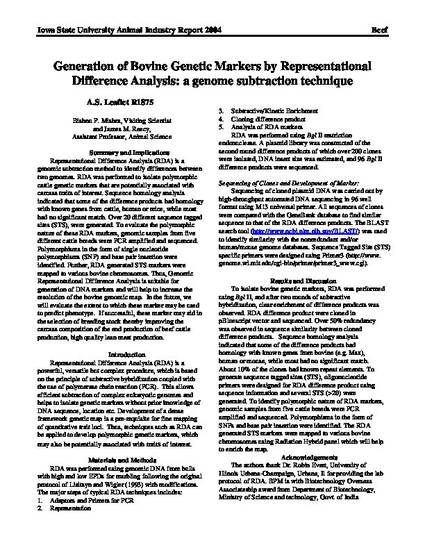
Representational Difference Analysis (RDA) is a genomic subtraction method to identify differences between two genomes. RDA was performed to isolate polymorphic cattle genetic markers that are potentially associated with carcass traits of interest. Sequence homology analysis indicated that some of the difference products had homology with known genes from cattle, human or mice, while most had no significant match. Over 20 different sequence tagged sites (STS), were generated. To evaluate the polymorphic nature of these RDA markers, genomic samples from five different cattle breeds were PCR amplified and sequenced. Polymorphisms in the form of single nucleotide polymorphisms (SNP) and base pair insertion were identified. Further, RDA generated STS markers were mapped to various bovine chromosomes. Thus, Genomic Representational Difference Analysis is suitable for generation of DNA markers and will help to increase the resolution of the bovine genomic map. In the future, we will evaluate the extent to which these marker may be used to predict phenotype. If successful, these marker may aid in the selection of breeding stock thereby improving the carcass composition of the end production of beef cattle production, high quality lean meat production.
Available at: http://works.bepress.com/james_reecy/20/
